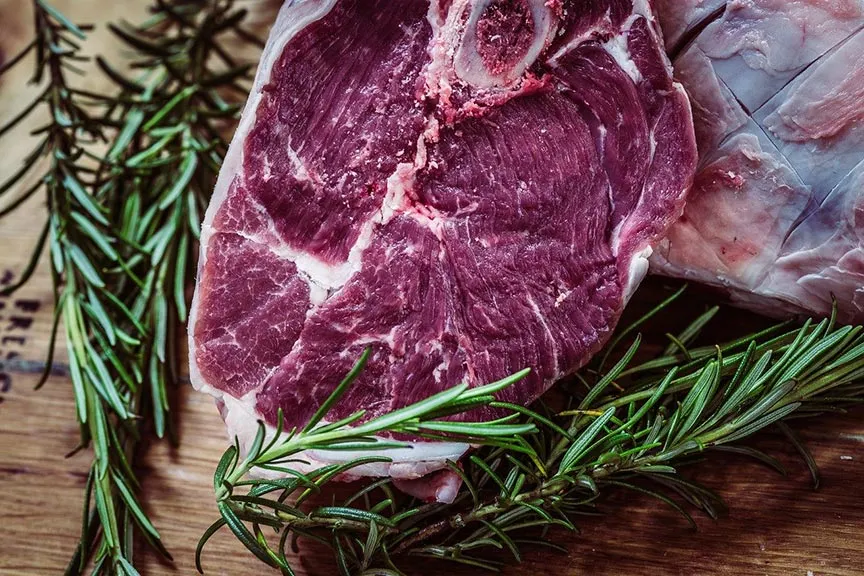If you’re someone who loves to enjoy quality food, you’re likely familiar with the taste of perfectly cooked meat.
There’s nothing quite as satisfying as a barbeque after a hot summer day, and Thanksgiving dinner almost always calls for a perfectly moist turkey.

The trouble is each separate animal requires a particular cooking method. Plus, raw meat isn’t the most appealing or glamorous thing to handle.
While it’s true that mastering the art of preparing and cooking meat can take years, there are some things you can do to ensure your success the next time you take a “stab” at a steak dinner or a chicken stew.
Whether you’re a seasoned expert or a total novice- here are 4 tips to help you perfectly cook your meat every time.
1. Don’t Be Afraid to Marinate
Something that isn’t always evident when shopping for meats is that no two cuts are equally tender. If you’re cooking a fillet mignon, it will need vastly different things compared to a stewing beef or sausage.
A good rule of thumb is the tougher the cut, the longer you should cook it and the longer you should marinate it.
Surface seasoning might do the trick for some meat selections, but if you’re looking to add the most flavour while tenderising, popping your meat in a marinade for at least an hour will make all the difference.
The longer meat sits in a marinade the better, ideally, meat should be prepped and left to sit in the fridge overnight. This will ensure that the flavours are fully saturated and the meat will be extra moist.
2. Cooking Method Matters
One of the most underutilized ways to get a restaurant-grade piece of meat at home is to get creative with your cooking method. Believe it or not, there are more ways to cook than just in a pan or in the oven.
In fact, the right cooking method can help to infuse your selected cut of meat with heaps of additional flavour.
A perfect example of one of these alternative methods is using a smoker. Pretty much exactly what it sounds like, smoking meat over a long period of time is sure to deliver a bigger texture and flavour in comparison to baking or grilling.
Reverse flow smokers are a great option if you’re looking for a barbeque smoker with a more uniform temperature throughout. Answers to some common questions can be found easily and will give a more in-depth look at the benefits of using a smoker.
If you’re looking to elevate your meals, this is definitely one of the options that will take the taste of your cooking to the next level.
3. Get Your Temperatures Right
Cooking your selected meat at the right temperature might seem like a given, but there is actually a lot to consider. Always adjust your cooking temperature in accordance with the type of meat you’re cooking.
Pro tip: cooking at a higher heat doesn’t mean you’ll overcook your meal. In fact, sometimes searing at a high temperature helps to seal in the meat’s natural moisture. A little browning can also add flavour and caramelise the cut of meat you are preparing.
However, some meats are best left to a slightly lower temperature for a longer duration to ensure they are cooked through without being burnt or dry.
Though there are many tricks for visually assessing if your meat is done, the best and most reliable solution is to use a meat thermometer. Investing in this kitchen tool will take the guesswork out of getting a perfectly cooked product.

4. Leave it Alone
Believe it or not, the biggest mistake an amateur or professional chef can make when trying to cook the perfect piece of meat is to do too much.
Fussing and meddling with your meat, whether it be flipping it too much or taking it in and out of the oven, will cause the quality to suffer. Oftentimes, dry meat can be a result of over-handling or vigorous pressing.
Similarly, if you flip or stir your meat too soon it may cause it to stick to your pan. When in doubt, especially directly after cooking your meat, leave it alone.
There you have it, four of the most important tips for correctly cooking your meat. Though some of the pointers may seem counterintuitive, sometimes less is more.
Especially in the kitchen, your tools and cooking methods should always be working for you- not against you.
So to recap, make sure you’re prepping your meat correctly and ensure you’re using the best heating method and timing.
Lastly, let your meat do its thing! Like baking a loaf of bread, if you keep interfering with the cooking process, the end result will be disappointing. Now keep these tips in mind and get cooking!

No comments
Post a Comment
I love to hear from everyone so thanks for taking the time to comment. Please note comments containing links will NOT be published.
Cheers
Jan